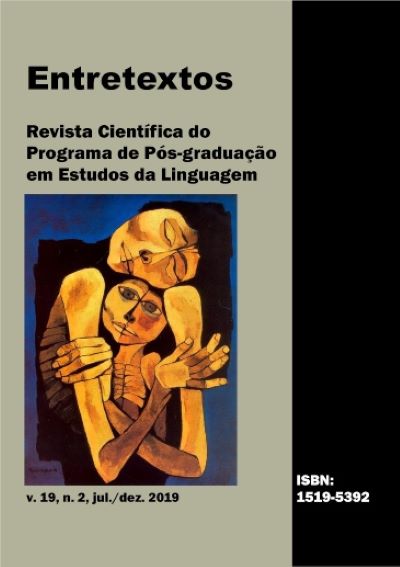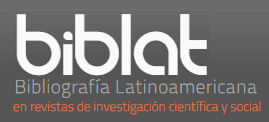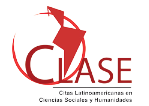High School students’ representations of the English Language and global citizenship
DOI:
https://doi.org/10.5433/1519-5392.2019v19n2p268Keywords:
English, Global citizenship, Critical discourse analysisAbstract
Currently, the English language has occupied a prominent position among foreign languages due to its role as the lingua franca of international contacts, in various domains on a global scale. Its link with the globalization process has been acknowledged in educational documents dealing with language policies and impacted the way learners position themselves in relation to it. Discourses or representations about this language and its possible impacts have been the subject of critical studies. Based on the Critical Discourse Analysis (ACD) framework, this article analyzes the representations/discourses of 75 high school students in the Londrina region, Paraná, on English language and global citizenship. From responses on an application form to an interdisciplinary “immersion” program conducted on a university campus, the representational meanings were analyzed. The analyzes indicated the predominance of celebratory discourses, through positive adjectives, as universal, fundamental, essential, facilitating, practical, efficient. As for the concept of global citizenship in its articulation with the English language and expressed through its purposes, the cultural/ communicational, and economic dimensions were predominant. To a lesser extent, the applicants identified perspectives that give English the role of promoting solidarity and creating bonds among people from different places.
Downloads
References
ANJOS-SANTOS, Lucas Moreira; EL KADRI, Michelle Salles; GAMERO, Raquel;GIMENEZ, Telma Nunes. Developing English Language teachers’ professional capacities through digital and media literacies: a brazilian perspective. In: YILDIZ, Melda N. KEENGWE, Jared (org.). Handbook of research on media
literacy in the digital age. Hershey, PA: 2016. p. 91 – 114. DOI
https://doi.org/10.4018/978-1-4666-9667-9.ch005.
ARCHANJO, Renata. Globalização e multilingualismo no Brasil: competência linguística e o Programa Ciência Sem Fronteiras. Revista Brasileira de Linguística Aplicada, Belo Horizonte, v. 15, n. 3, p. 621-656, 2015. DOI: http://dx.doi.org/10.1590/1984-639820156309. Disponível em: http://www.scielo.br/scielo.php?pid=S1984-63982015000300621&script=sci_arttext. Acesso em: 23 set. 2019.
BARCARO, Carla F. Os contextos de influência e de produção de textos no âmbito do programa “Novos Talentos”: a realização de uma política de aproximação universidade-escola na área de língua inglesa. 2019. 189 f. Tese (Doutorado em Estudos da Linguagem) - Universidade Estadual de Londrina, Londrina, 2019.
BARCARO, Carla F.; GIMENEZ, Telma Nunes. Formação de professores de inglês para o século 21. In: ANDRADE, Maria Eugênia Sebba Ferreira de; HOELZLE, Maria José Lacerda Rodrigues; CRUVINEL, Roberta Carvalho. (Trans)formação de professoras/es de línguas: demandas e tendências da pósmodernidade. Campinas, SP: Pontes Editores, 2019. p. 89-110.
BLOCK, David; GRAY, John; HOLBOROW, Marnie (Ed). Neoliberalism and applied linguistics. New York: Routledge, 2012.
BRASIL. Ministério da Educação. Base nacional comum curricular. Brasília: MEC, 2019. Disponível em: http://basenacionalcomum.mec.gov.br/images/BNCC_EI_EF_110518_versaofina l_site.pdf. Acesso em: 2 out. 2019.
BRASIL. Ministério da Educação. Secretaria da Educação Básica. Orientações curriculares para o ensino médio: linguagens, códigos e suas tecnologias. Brasília, DF: MEC, 2006.
CRISTOVÃO, Vera Lúcia Lopes; CABRAL, Vinícius Neves. Podcasts:
características nas produções de professores em formação continuada. Revista Estudos da Linguagem, Belo Horizonte, MG, v. 21, n. 1, p. 189-222, 2013.
CRISTOVÃO, Vera Lúcia Lopes; LENHARO, Rayane Isadora. Podcast, participação social e desenvolvimento. Educação em Revista, Belo Horizonte, MG, v. 32, n. 1, p. 307-335, 2016.
CRYSTAL, David. English as a Global Language. 2. ed. Cambridge: Cambridge University Press, 2003.
EL KADRI, Michelle Salles; GAMERO, Raquel; GIMENEZ, Telma Nunes. Material didático para educação tecnológica de professores de inglês: uma experiência no âmbito do programa ‘novos talentos’. Revista Linguagem & Ensino, Pelotas, RS, v. 15, n. 1, p. 181-212, 2012. Disponível em:
http://www.rle.ucpel.tche.br/index.php/rle/article/view/483. Acesso em: 17 jun. 2015.
FAIRCLOUGH, Norman. Analysing discourse. Abingdon: Routledge, 2003.
GIMENEZ, Telma Nunes et al. (coord.). Para inserção em um mundo globalizado: utilizando recursos tecnológicos no ensino e aprendizagem de inglês. 2010.
GIMENEZ, Telma Nunes; EL KADRI, Michelle Salles, GAMERO, Raquel; ANJOSSANTOS, Lucas Moreira (org.). Conhecimento, escola e comunidade: experiências no âmbito do programa Novos Talentos. Londrina: EDUEL, 2019.
HOLBOROW, Marnie. Language and neoliberalism. London: Routledge, 2015.
PARK, Joseph Sung-Yul; WEE, Lionel. Markets of English: linguistic capital and language policy in a globalizing world. New York: London Routledge, 2012.
PENNYCOOK, Alastair. Global Englishes and transcultural flows. Abingdon: Routledge, 2007.
PUCCI, Bruno. Tecnologia, crise do indivíduo e formação. Comunicações (UNIMEP), Piracicaba, SP, v. 2, p. 70-80, 2005. Disponível em: http://www.unimep.br/~bpucci/bruno-anpedinha-2005.pdf. Acesso em: 20 set. 2019.
RAMALHO, Viviane; RESENDE, Viviane de Melo. Análise de discurso (para a) crítica: o texto como material de pesquisa. Campinas: Pontes, 2011.
RESENDE, Viviane de Melo; RAMALHO, Viviane. Análise de discurso crítica. São Paulo: Contexto, 2009.
RESENDE, Viviane de Melo; RAMALHO, Viviane. Análise do discurso crítica: uma reflexão acerca dos desdobramentos recentes da teoria social do discurso. ALED: Revista Latino Americana de Estudios del Discurso, Caracas, VE, v. 5, n. 1, p. 27-50, 2005.
ROGERS, Rebecca (ed.). An introduction to critical discourse analysis in education. New York, NY: Routledge, 2011.
SEIDLHOFER, Barbara. Understanding English as a Lingua franca. Oxford: Oxford University Press, 2011.
SOUZA, J efferson Adriano de. Questionando o falante nativo de inglês: representações e identidades de estudantes em um instituto federal de educação. 2014. Tese (Doutorado em Estudos da Linguagem) – Universidade Estadual de Londrina, Londrina, 2014.
STIGLITZ, Joseph E. Os exuberantes anos 90. São Paulo: Companhias das Letras, 2003.
UNESCO. Relatório de monitoramento de Educação para Todos Brasil 2008: educação para todos em 2015; alcançaremos a meta? 2008. Disponível em: https://unesdoc.unesco.org/ark:/48223/pf0000159294. Acesso em: 12 ago. 2019.
Downloads
Published
How to Cite
Issue
Section
License
Entretextos adota a Licença Creative Commons Attribution 4.0 International, portanto, os direitos autorais relativos aos artigos publicados são do(s) autor (es).
Sob essa licença é possível: Compartilhar - copiar e redistribuir o material em qualquer suporte ou formato. Adaptar - remixar, transformar, e criar a partir do material, atribuindo o devido crédito e prover um link para a licença e indicar se mudanças foram feitas.




















